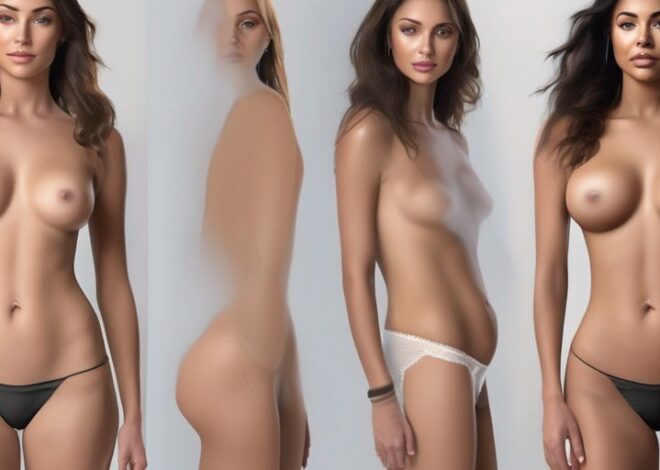
‘Undress AI’: The Invisible Line of Privacy Invasion
In the digital age, the boundaries between privacy and public exposure are increasingly blurred by advancements in technology. The emergence of ‘Undress AI’ technologies, such as Nudify.Online, has sparked a complex debate about the ethical implications of AI-driven image alteration. This article delves into the multifaceted issues surrounding these technologies, examining their legal, psychological, and ethical dimensions, as well as public reaction and future prospects.
Key Takeaways
- The emergence of ‘Undress AI’ like Nudify.Online highlights significant ethical and privacy concerns.
- Legal frameworks currently lag behind technological advancements, leaving gaps in privacy protection.
- AI-driven image alteration can have profound psychological impacts, affecting individual self-esteem and societal norms.
- Technological mechanisms behind these AI tools are complex and raise questions about accuracy and misuse.
- Future directions in AI privacy must balance innovation with ethical considerations and tighter regulations.
The Emergence of ‘Undress AI’ Technology

Understanding Nudify.Online
Nudify.Online represents a significant leap in digital image processing, allowing users to digitally remove clothing from images. This web-application utilizes the most advanced clothes-removing AI technology of 2024, marking a pivotal moment in the evolution of AI capabilities.
Evolution of Clothes-Removing AI
The development of clothes-removing AI has seen rapid advancements, transforming from simple pattern recognition to complex algorithms capable of detailed image alterations. This evolution reflects broader trends in AI development, where applications increasingly affect personal privacy and societal norms.
Implications for Digital Ethics
The rise of ‘Undress AI’ technology like Nudify.Online raises critical questions about digital ethics. The ability to alter images at such a personal level without consent introduces significant ethical dilemmas, emphasizing the need for robust discussions and regulations in the digital realm.
Legal Frameworks Surrounding AI and Privacy

Current Laws and Regulations
In the rapidly evolving landscape of artificial intelligence, current laws and regulations often struggle to keep pace with technological advancements. Most countries have general privacy laws that indirectly cover AI applications, but specific AI-focused legislation is rare. This gap highlights the need for a regulatory roadmap to AI and privacy.
Gaps in Legal Protections
Despite existing regulations, significant gaps remain in legal protections against privacy invasions by AI technologies like Nudify.Online. These gaps not only expose individuals to potential harm but also undermine trust in AI applications. A comprehensive overview is necessary to evaluate these vulnerabilities and strengthen legal frameworks.
International Perspectives on AI Privacy
Different countries have varied approaches to AI and privacy, ranging from stringent regulations in the European Union to more lenient policies in other regions. This diversity presents both challenges and opportunities for harmonizing international laws, ensuring a balanced approach to privacy and innovation in AI.
Psychological Impact of AI-Driven Image Alteration

Effects on Individual Self-Esteem
The use of AI-driven image alteration tools like Nudify.Online can significantly impact individual self-esteem. People may feel violated or objectified when their images are altered without their consent, leading to emotional distress and a decrease in self-worth. This technology can also create unrealistic body standards, further affecting individuals’ perception of their own bodies.
Social Consequences of Image Manipulation
AI-driven image manipulation extends beyond personal impact, influencing social dynamics and interactions. The ability to alter images can lead to trust issues and a general skepticism in digital communications. Misuse of such technology can exacerbate social inequalities by promoting certain body types or appearances as more desirable.
The Role of Consent in Digital Interactions
Consent plays a crucial role in digital interactions, especially concerning AI-driven technologies that alter personal images. The lack of explicit consent in using tools like Nudify.Online for altering someone’s image can lead to significant psychological distress. Establishing clear guidelines and ethical standards for consent in digital media is essential to protect individuals from potential abuse.
Technological Mechanisms Behind AI Image Stripping

How Nudify.Online Works
Nudify.Online leverages advanced clothes-removing AI technology to digitally remove clothing from images. This process involves complex algorithms that analyze the clothing’s texture, color, and shape to generate a realistic image of what might lie beneath. The technology ensures that the alterations are photorealistic, integrating watermarking mechanisms directly into the image for authenticity verification.
Advancements in AI Image Processing
Recent advancements have significantly improved the efficiency and accuracy of AI image processing. Techniques such as machine learning and neural networks have evolved, allowing for more sophisticated image manipulation. This includes not only removing clothes but also enhancing image resolution and adjusting lighting to create more lifelike results.
Challenges in AI Accuracy and Reliability
Despite the progress, there are still significant challenges in AI accuracy and reliability. Misidentification and inappropriate image alterations can occur, leading to potential ethical and legal issues. Ensuring the AI systems are well-trained and equipped with fail-safes is crucial to mitigate these risks.
Ethical Dilemmas in the Use of Undress AI

Balancing Innovation with Moral Boundaries
The rapid advancement of AI technologies like Nudify.Online presents a critical challenge in balancing technological innovation with ethical considerations. Developers and regulators must navigate the fine line between enhancing digital capabilities and protecting individual privacy.
Privacy Versus Public Interest
In the context of Undress AI, the debate intensifies between the right to privacy and the perceived public interest. This technology, while innovative, raises significant concerns about the potential for misuse and exploitation, particularly in non-consensual scenarios.
The Responsibility of AI Developers
AI developers play a crucial role in shaping the ethical landscape of technologies they create. It is imperative that they implement robust ethical guidelines and transparency in the development and deployment of AI systems, especially those like Nudify.Online that deal with sensitive content.
Public Reaction and Media Coverage

Media Portrayal of Undress AI
The media has played a pivotal role in shaping public perception of Undress AI technologies. Reports range from highlighting the privacy invasion and potential for misuse to discussing the technological marvels these tools represent. The narrative often swings between alarm and fascination, influencing how the public perceives these technologies.
Public Outcry and Support
Public reaction to Undress AI has been mixed, with significant outcry over privacy concerns contrasted by a segment of the population intrigued by the technology’s capabilities. This dichotomy is evident in social media discussions and public forums where debates about ethical implications versus technological advancements occur.
Influence of Media on Public Perception
The influence of media on public perception cannot be understated. Articles and news segments often serve as the primary source of information for many, shaping their views and opinions on the subject. The coverage can amplify concerns or support, depending on the angle of the reporting, thus playing a crucial role in the societal acceptance or rejection of such technologies.
Future Directions in AI and Privacy

Predictions for AI Development
The future of AI is constantly evolving, with new technologies emerging that push the boundaries of what machines can do. As AI becomes more integrated into everyday life, its capabilities will expand, leading to more sophisticated and autonomous systems. This progression will undoubtedly influence privacy norms and expectations.
Potential Regulations and Policies
Governments and regulatory bodies worldwide are beginning to recognize the need for updated policies to address the rapid advancements in AI. Here are some potential areas for regulation:
- Data protection and privacy
- Transparency of AI algorithms
- Consent protocols for AI interactions
- Accountability for AI-driven decisions
Ethical Considerations for Future Technologies
As AI technologies advance, so too must our ethical frameworks. It is crucial to balance innovation with ethical considerations to ensure that AI developments benefit society as a whole. This balance will require ongoing dialogue among technologists, ethicists, and policymakers to navigate the complex landscape of AI ethics.
Conclusion
As we navigate the complex landscape of technological advancements and privacy concerns, it is crucial to critically assess tools like Nudify.Online. While these applications showcase the prowess of AI technology, they also raise significant ethical questions about privacy invasion. The balance between innovation and individual rights must be carefully managed to ensure that technology serves humanity without compromising personal dignity and autonomy. It is imperative for policymakers, technologists, and the public to engage in meaningful dialogue to establish boundaries that protect privacy while fostering technological growth.
Frequently Asked Questions
What is Nudify.Online?
Nudify.Online is an advanced web-application that uses cutting-edge AI technology to digitally remove clothes from images of people, showcasing the capabilities of clothes-removing AI as of 2024.
How does the Nudify.Online technology work?
Nudify.Online employs sophisticated AI algorithms to analyze and interpret images, then digitally alters them to appear as if the individuals are not wearing clothes. This process involves complex image processing techniques that identify and modify clothing within the image.
What are the legal implications of using Nudify.Online?
The use of Nudify.Online raises significant legal questions, particularly concerning privacy rights, consent, and the distribution of altered images. The legality may vary by jurisdiction and involves navigating both existing laws and potential gaps in digital ethics and privacy regulations.
What psychological effects might result from AI-driven image alteration like Nudify.Online?
AI-driven image alteration can impact individual self-esteem, body image, and mental health. It can also affect social dynamics, potentially leading to issues such as cyberbullying, harassment, or the spread of non-consensual pornography.
Are there any ethical concerns associated with the development and use of Undress AI like Nudify.Online?
Yes, there are numerous ethical concerns, including the violation of privacy, the potential for misuse, and the broader implications on societal norms and values. Developers and users must consider these issues to balance innovation with ethical responsibility.
What future developments can be expected in the field of AI and privacy, particularly concerning technologies like Nudify.Online?
Future developments may include more advanced AI capabilities, stricter regulations, and enhanced ethical guidelines. There is also potential for public pushback and changes in societal attitudes towards privacy and digital consent, which could shape the evolution of such technologies.



